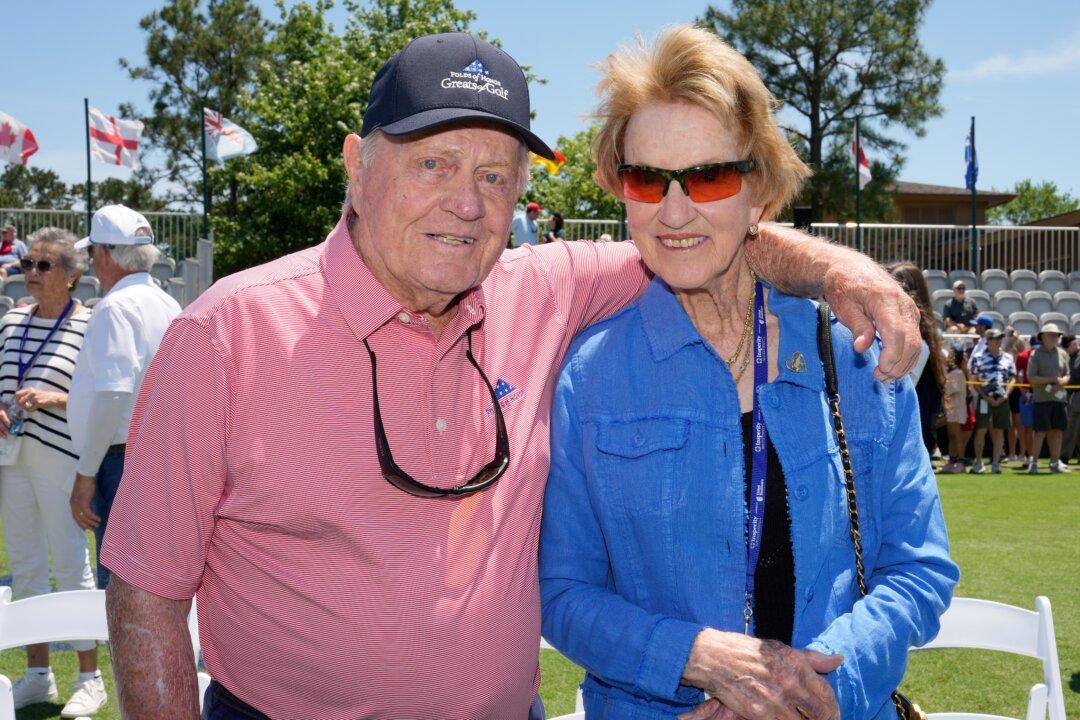The biggest events in golf are the major championships—The Masters at Augusta each April followed by the US Open in June and then The Open Championship in July. The final jewel in that quartet has never really sparkled to an equal glow—the PGA Championship.
Played in August, the PGA has not been able to generate the stature of the other majors. In fairness, it’s not because the PGA of America—the parent group for the event—hasn’t tried in numerous ways. For a number of years the PGA of America has sought out quality venues for the event and the golf drama has been quite high at given times. Interestingly, this year’s site—Valhalla, just outside of Louisville—hosted one of the most memorable Championships when Tigers Woods outlasted a determined Bob May in a three-hole aggregate playoff in 2000.
For a time the PGA used the tagline—“Glory’s Last Shot”—as a means to say to the world at-large, “look at us.” That campaign was put to rest a few years ago.
The more fascinating element in elevating the event’s lack of global stature is an idea which may be the most needed item to implement—taking the PGA Championship and staging it outside the USA. Since the event’s inception in 1916 at Siwanoy in Westchester, NY, the PGA Championship has really only had two major elements—commencing as a match-play event through 1957 before becoming a pro-forma 72-hole event similar to all the other majors.
The issues for the PGA are fairly straightforward. How much of the golf world really pays respect to the event now? America is the host site for three of the four majors and the PGA is routinely tagged by non-American media as the “US” PGA Championship. The tagline minimizes the reach any golf major needs to have. No avid golf fan calls The Open Championship the British Open. The PGA of America needs to rebrand its flagship event, positioning the PGA as the premier event for those who call themselves professional golfers.
The trial balloon got started with a probe by PGA leaders in determining the ramification of the event leaving the USA—not permanently—but having the wherewithal to be played elsewhere at least once or twice a decade. Pete Bevacqua, PGA of America’s CEO, said as much to Golf World in October of 2013. “This is an exercise we are going through—an analysis. It is far from a fait accompli that we are going to take the PGA Championship international.”
CBS has the television rights through 2019—all other host sites between now and then have been announced, including a 2022 event for Trump Bedminster. That’s right. None other than “The Donald’s” place conveniently located in between the New York and Philadelphia golf markets in New Jersey.
No PGA Championships have been scheduled, thus far, for either 2020 or 2021.
“When we sat down to map our strategic plan to service our members and grow the game the question arose as to what impact it would have to take the PGA Championship to an international location once or twice a decade,” said Bevacqua.
The “impact” for the PGA Championship comes in many forms. Moving the event would build a wider global presence than exists now. For many the PGA Championship is simply a run-of-the-mill cut and paste version of what one sees week-to-week with PGA Tour events. No doubt the PGA has a more enhanced set-up and stronger field but the overall character of the event simply blends in rather than stands apart from ordinary events.
In 1971 the PGA held its signature event in February in Florida. Jack Nicklaus won the event and although the return to the August time frame was done the next year—and continues to this day—there is at least some wiggle room for when the event is played.
Going to a “winter” time position opens up the possibility in staging the PGA at such southern hemisphere locations as Australia and South Africa—two very prominent golfing nations with a rich pedigree in the game. A comparable situation exists in tennis with the Australian Open—one of that game’s major events—is always played in late January.
Scheduling a winter-time position would also allow the PGA to be the first played major in that year—supplanting what The Masters has smartly crafted in raising its overall profile globally as the “official” start of the golf season in the United States.
The brain trust of the PGA is also savvy enough to know that bringing the event beyond the shores of America would open up possible increased revenue streams from television, cable and other live feed platforms.
The European Tour showed shrewd business calculations by revamping where its events are played a number of years ago – by engaging non-European locations the actual standing of the Tour itself improved as well as the competitive firepower for those playing.
Still, the politics of when golf events are scheduled is vastly complicated by the many needs of the different groups that already operate—at the top of the heap being the PGA Tour and the European Tour.
The PGA of America in floating this trial balloon is simply looking out for what is best for their position. Clearly, there are times when individuals or groups send signals one way—and then act by reversing course in going in a completely different position.
The PGA Championship has been a staple in golf for nearly 100 years. Being the weakest of the four majors provides a fresh examination in doing what is needed from a 21st century perspective. Remaining in August and moving along the same path as it has for the last number of years is an easy call because it’s a path that’s proven to be quite comfortable. But, as all sports know in today’s ever-changing landscape—being receptive to the shifting elements is a must for long-term growth. As the late Clifford Roberts, the former major domo of The Masters, was fond of saying when quizzed by press people about “changes” made at Augusta National—changes are not made at Augusta, only “improvements.” That needs to be the mantra for the PGA Championship.
M. James Ward, a member of Golf Writer’s Association of America (GWAA) and past member of Met Golf Writer’s Association (MGWA), has reported on golf’s grandest events since 1980 in a variety of forums.





